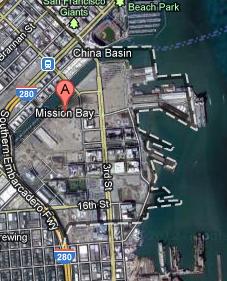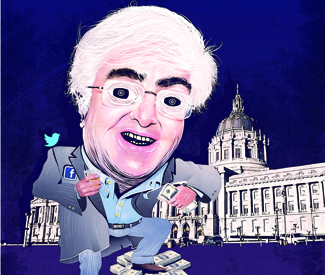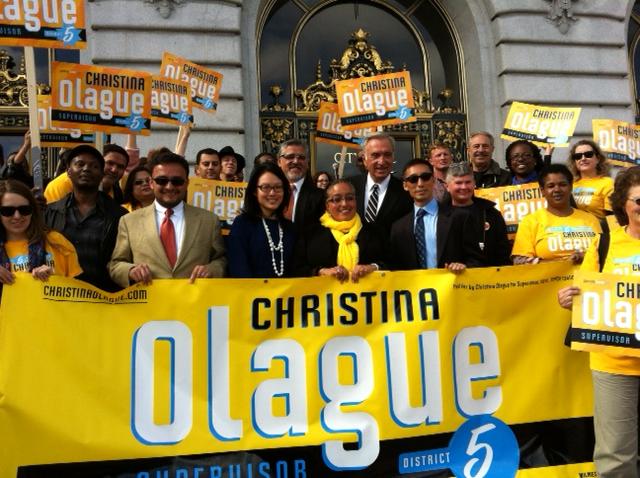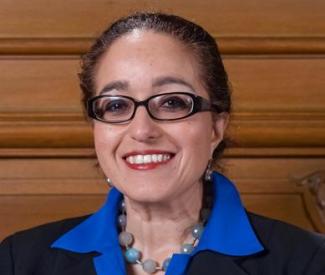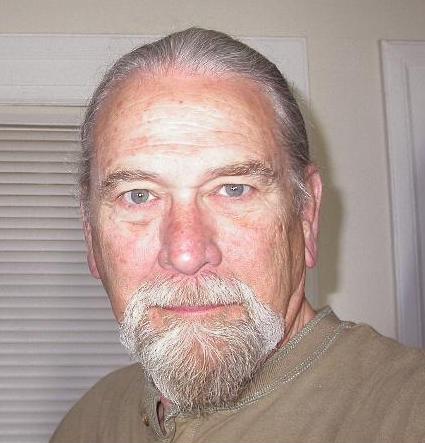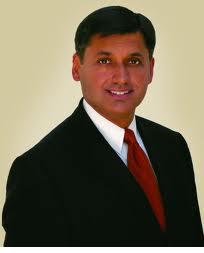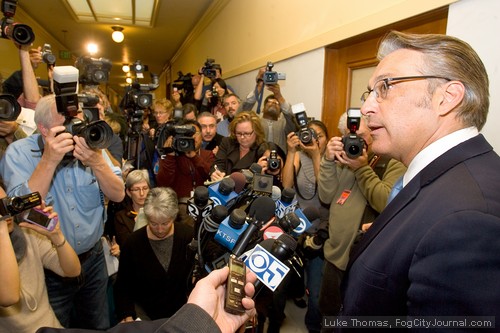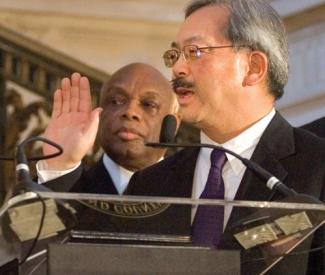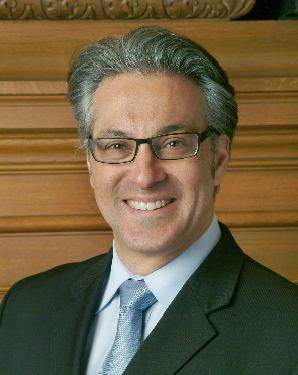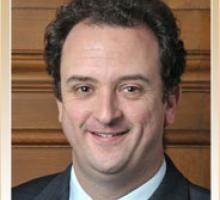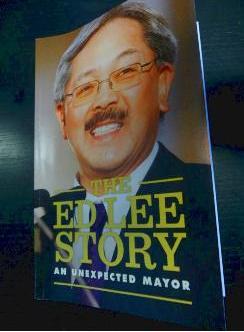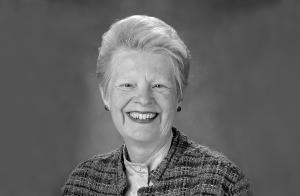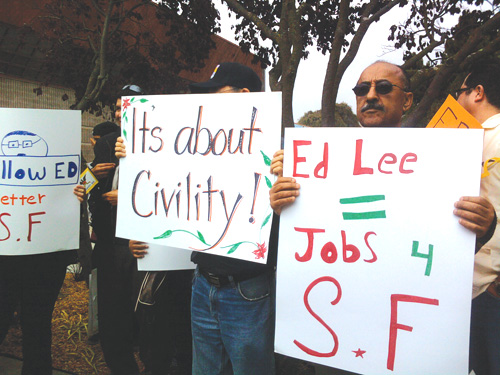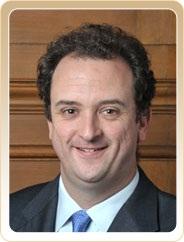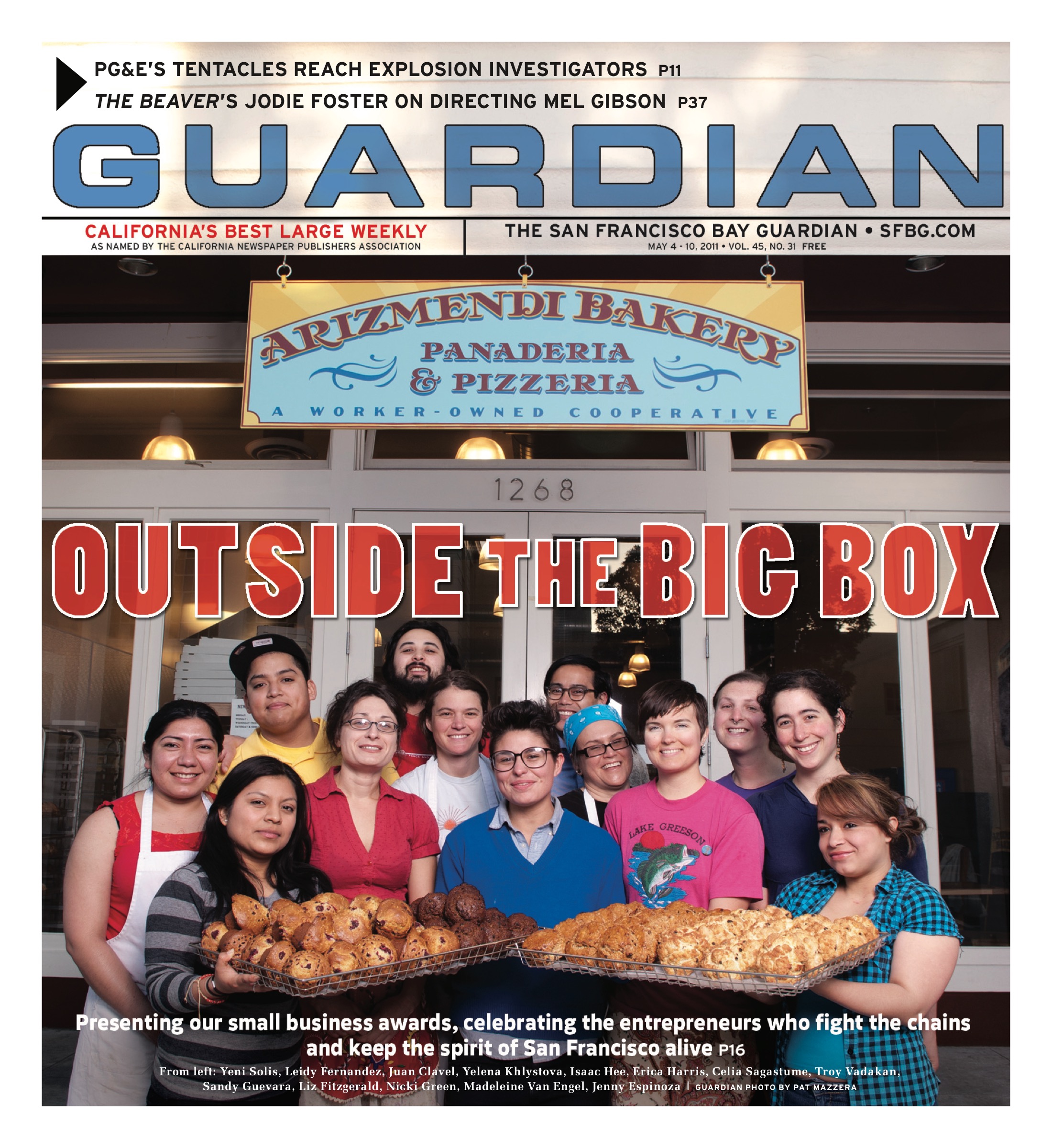Everyone loves to talk about the value of small business. There’s a National Small Business Week, proclaimed by the president, and San Francisco Small Business Week, proclaimed by the mayor. There are conferences and speakers and programs. Even the San Francisco Chamber of Commerce — the mouthpiece for giant corporations in town — periodically hails the value of the little entrepreneur.
But when you get right down to it, small businesses don’t have it easy in this town. Under siege from big chains (who often get their way at City Hall), faced with unfair tax burdens (the little operators pay the same rate as the biggest companies), struggling to find support from banks (many of which don’t make many small business loans), the companies that create most of the new jobs in the city and preserve the lively character of the neighborhoods ultimately get little respect.
Check it out: if Twitter — worth billions — wants a tax break, City Hall leaps to the rescue. Yet a proposal that would have made the business tax burden more fair for small companies died last year without a vote.
Once a year we celebrate the people who hang in there, often against the odds, and not only survive but thrive. People who build small businesses that build cool neighborhoods and hire local workers and keep the San Francisco economy moving.
This year we’ve combined our editors’ picks with readers’ choices — and we’ve asked our winners who they would have picked as the best small businesses of the year. It’s a wonderful lineup that looks, and feels, like San Francisco. (Tim Redmond)
ARTHUR JACKSON DIVERSITY IN SMALL BUSINESS AWARD
LA COCINA
Believe it or not, there was a time in this city when Le Truc did not park its chicken parmigianas in front of the Conservatory of Flowers and street food did not inspire a weekly mob scene at Off The Grid’s mobile market. Back then, a lot of the people who sold food on the street were immigrant women.
“Their commonality is this incredible entrepreneurial spirit,” says Caleb Zigas of La Cocina, a food business incubator created to give street food vendors the tools they need to take their business into the next realm of profitability.
Its program has proven highly successful. After taste tests of applicants’ proposed cuisine (“They wouldn’t be here if their product wasn’t good,” Zigas says. La Cocina participants are counseled on brand development and distribution. In the organization’s gleaming commercial kitchen in the Mission District, eight businesses can simultaneously work at one time. On a typical morning, it’s used to prepare hummus, huaraches, and traditional Yucatecan-Mayan food for a day of sales.
Some graduates, like Clairessquares — a chocolate-shortbread-caramel treat company started by the eponymous Irish immigrant — are local grocery store constants now. Some businesses have used the program to go from selling at farmers markets to owning a restaurant of their own — Veronica Salazar of El Huarache Loco will be the first La Cocina grad with a brick and mortar location, opening in Larkspur this year. Two years ago, La Cocina started the Street Food Festival, an event that consistently packs the streets where it occurs and this year plans to expand to nine blocks of vendors.
Entrepreneurs from Nigeria, Ethiopia, Malaysia, Japan, El Salvador, and Mexico have passed through the La Cocina program. Everyone on staff speaks English and Spanish (the languages the organization offers counseling in). Outreach is done through partnerships with other groups like the Women’s Initiative and the Renaissance Entrepreneurship Center.
Though the center now fields applications from all socioeconomic levels as street food becomes chic food, its original purpose remains: to provide a foot up to the women who are pushing to make life work in a new country with their families. “It’s important for us to remember that our mission is to provide an entry into business,” Zigas says.
La Cocina’s small business award pick: As the diplomatic Zigas says: “The consumers who purchase from small business owners.” (Caitlin Donohue)
2948 Folsom, SF. (415) 824-2729, www.lacocinasf.org
GOLDEN SURVIVOR AWARD
HANS ART AUTOMOTIVE

The repair folks: Sophia Chicas, Norbert Alvarenga, Luis Frias, Joao Santos, Ricky Saavedra, Henry Wong, and Hans Art. Photo by Ben Hopfer
Hans Art got his start in business in 1970, when one of his Noe Valley roommates couldn’t get his car started — and was therefore unable to get to his job delivering erotic ice cream concoctions to stoners and musicians at midnight for the legendary restaurateur Magnolia Thunderpussy.
“I was your classic hippie mechanic,” Art recalled. “I came out there with my screwdriver, adjusted the points, and the guy was on his way. And it occurred to me that this might not be a bad way to make a living.”
His business plan: An index card with his phone number on the wall in Bud’s Ice Cream. His goal: Flexible hours, plenty of time off and “a great way to have an alternative lifestyle.” That didn’t last long: “Pretty soon I was the hardest working hippie in San Francisco.”
More than 40 years later, Hans Art Automotive is one of the city’s most beloved car repair shops, a successful small business that still has a bit of the old hippie ethic.
“I have lots of customers with very moderate incomes,” Art said. “I tell them what’s needed now, what can wait four months … I pare it down so the service is affordable. We’re very non-pushy.”
It’s certainly working: more than 95 percent of his customers are regulars. “We want you to have a regular mechanic, the way you have a dentist,” he said. “Our advertising is mostly word of mouth.”
These days Art works from a cramped office above the shop floor, supervising around 10 employees who take extraordinary care in their work. “There are 800 opportunities for us to screw up every day,” Art noted. “If we avoid 799 of them, a lot of people would think that’s great — unless your car is the one we missed.”
He’s up against much bigger outfits in a business with low margins and constant changes in technology that require expensive investments — and that easy lifestyle is still elusive — but Art is a survivor. “I think I’ve made payroll more than 3,000 times,” he said. “For a small business, that’s quite an accomplishment.”
Hans Art’s small business award pick: He couldn’t pick just one — Art went with Michael Bruno Luggage, Noe Valley Bakery, and Tuggy’s Hardware.(Redmond)
3121 17th St., SF. (415) 621-6400, www.hansartautomotive.com
WOMEN IN BUSINESS AWARD
KATE SOFIS

Kate Sofis. Photo by Ben Hopfer
Kate Sofis is quick to tell you that she only held “one nonprofit job” prior to her work with SFMade, San Francisco’s local manufacturers association. The real root of Sofis’ passion lies with the manufacturing world. It’s not surprising — she’s seen the sector shape communities.
Raised in 1970s Buffalo, N.Y., where manufacturing was seriously struggling, Sofis later found herself drawn to studying Japanese quality practices in college. After graduation, she ran production lines for high tech companies. “I worked with Apple during the first iMac production runs on Folsom,” she says. She was also there for Apple’s first outsource.
Later she worked with a small South San Francisco furniture manufacturer (“back when we were still making furniture in this country.”) that eventually folded. Sofis realized that although she wanted to work in manufacturing, she wanted even more for there to be a manufacturing sector to work for.
“There were no programs set up,” she says, sitting in SFMade’s office space within the TechShop building on Howard Street. “You couldn’t get a bank loan because no one believed it was possible to actually make money in small manufacturing.” Sofis knew that manufacturing created decently-paying, high-skilled jobs with good benefits. At the same time, she understood that it needed to define its identity in 21st century America — and stand up for its sector’s health.
Today, the year-and-a-half-old SFMade has grown to include 150 San Francisco manufacturers — from Anchor Brewing to mid-Market garment shops, to Home Kombucha and Rickshaw Bags. May 21-27, it will sponsor SFMade Week, chockfull of local shopping events and “open factories” tours of members’ production areas.
The group advocates for ways to make its members’ economic contribution tenable in one of the most expensive cities in America. Sofis and other staff work to establish lines of communication to City Hall around issues like improved public transportation in areas where a lot of manufacturing gets done. “If the mattress coil spring guy is late, guess what? Mattresses don’t get made,” she say. But equally salient is its work on raising awareness among consumers and policymakers that San Francisco manufacturing still exists — and in the age of artisanal products, has the capacity to grow.
Her small business award pick: Greg Markoulis, manager of the American Industrial Center. “Twenty-five percent of our companies are located there, and they’re there for the long haul. Without that asset. San Francisco wouldn’t have half the manufacturing it does.” (Donohue)
SFMade, 926 Howard, SF. www.sfmade.org
SPIRIT OF THE STREETS AWARD
THE TAMALE LADY

Virginia “The Tamale Lady” Ramos. Photo by Ben Hopfer
Virginia “The Tamale Lady” Ramos has been selling her own homemade tamales since 1993, when she started her business to make enough money to send her daughters to school. She didn’t expect to become a local legend. Selling bar-to-bar to hungry boozehounds ever since, she’s made a name for herself as one of the city’s most celebrated street food vendors.
Hungry? Current tamale varieties include chicken, pork, chile cheese, sweet potato black bean, and mixed vegetable. Although Ramos’ prices have gone up since the early 1990s, they’re still a bargain — $4 for a hefty handful of home-cooked masa and filling, delivered right to your bar stool.
There’s no disputing that the Tamale Lady has achieved T(amale)-list celebrity, but her work is far from done. With the help of her family, Ramos’ treats land in rates of about 100 per day in the stomachs of soused locals in bars across the Mission, Tenderloin, and Lower Haight.
She imports her cornmeal and husks straight from Mexico. Every tamale is made by hand in her kitchen — a process that can be witnessed by watching the 2004 Cecil B. Feeder rockumentary on her life, which features a slew of original songs in homage to her work. It’s physically demanding, but Ramos bears the honor of being the city’s tamale angel with pride.
“I had an unpleasant life growing up [in Mexico]. I’ve been here for 25 years, and San Francisco gave me something I never had before: it brought me my independence. SF people came into my life as angels, they gave me the opportunity to feel like I can do my thing and nobody can mess with me.”
The Tamale Lady’s small business award pick: “The independent flower girls who go around selling flowers in restaurants, bars, and shops around the Mission.” (Hannah Tepper)
twitter.com/tamalelady
EMPLOYEE-OWNED BUSINESS AWARD
ARIZMENDI BAKERY

Arizmendi employee-owners, fresh from the ovens: (from left) Yeni Solis, Leidy Fernandez, Juan Clavel, Yelena Khlystova, Isaac Hee, Erica Harris, Celia Sagastume, Troy Vadakan, Sandy Guevara, Liz Fitzgerald, Nicki Green, Madeleine Van Engel, and Jenny Espinoza. Photo by Pat Mazzera
For the worker-owners at Arizmendi Bakery, cooperation is more than just a nice idea — it’s their business model. “I’ve worked in everyplace from Safeway to a bakery that was owned by one person,” says Arizmendi worker-owner Heather Coppersmith. “Arizmendi is different because we have to worry about our own finances, cost of sales, and income. We all get a sound understanding of what it takes to run a business, but responsibilities are spread out so that no one person is bearing the full brunt.”
So how does the egalitarian model function so well? “All of the work is shared,” says Coppersmith. “We create an environment that makes everyone feel valuable and train everyone in all aspects of the bakery, so there is no need for management.”
Arizmendi’s first sister location, the Cheeseboard, opened in the mid-1990s on Lakeshore Boulevard in Oakland. The concept of a bakery that was entirely worker-owned was dreamed up by Berkeley professor Jaques Kaswan and his partner Tim Huet. The idea was a winner: today there are five bakeries in the Arizmendi family across the Bay Area. When a new Arizmendi is started, newly hired worker-owners intern and train at other locations, learning all they need to know to operate their own bakery before opening for delicious, fluffy, crusty business.
The model has worked so well that Arizmendi was one of only nine food businesses in San Francisco to be awarded a perfect worker treatment score by its employees in community group Young Workers United’s yearly restaurant guide. It received high marks in wages, job mobility, health and safety, and job security — not surprising since worker-owners have the final say on workplace issues at Arizmendi.
But let’s not forget — how could we, really? — that Arizmendi doesn’t just produce happy and fulfilled worker-owners. The bakeries are best known for their more public offerings: delicious brioches, organic breads, and vegetarian pizzas with seasonal toppings that change daily. Cooperation never tasted so good.
Arizmendi’s small business award pick: “Underdog on Irving street. It’s a family-run hotdog and sausage place that has some great vegan options. They are very conscious of the food they prepare and where they are getting it from — and they are really nice.” (Tepper)
Various Bay Area locations. www.arizmendibakery.org, valencia.arizmendi.coop, lakeshore.arizmendi.coop
CHAIN ALTERNATIVE AWARD
DISCOUNT BUILDERS SUPPLY

Shannon Brundiek of Discount Builders Supply. Photo by Ben Hopfer
Going up against big businesses like Lowe’s and Home Depot doesn’t mean Discount Builders Supply needs to pull any fancy gimmicks to get customers. Indeed, some clients have been returning to the 50-year-old SoMa spot since manager Shannon Brundiek started working there two decades ago.
“A lot of big-box stores have popped up in that time,” Brundiek says. “We don’t handle business in the same way, or stock the same products, but they’re definitely our competition. They spend a lot of money competing for the same market share.”
Money national chains spend on advertising, owner Charles Goodman channels into things like employee benefit programs. The result? A business you can go to even if you’re not quite sure what it is that you need. Discount Builders Supply banks on the fact that its employees know how to help whoever walks in the door.
“What stands out most to our customers is the service,” says Brundiek. “Because we pay benefits, our employees work full time, and we strive to keep our employees long-term. It’s a career for them — it’s what they do and they love it.”
All that added experience makes a difference to devoted customers who count on DBS employees to know the difference between cinder blocks and coffin locks, cable clamps and sodium lamps.
Brundiek is adamant that the store he works at is simply a good old-fashioned hardware shop — “We don’t sell TVs or dog toys,” he says. But the business does offer free design services for kitchen and bath and specializes in SF-specific fixtures, plumbing, and moldings common in Victorians. Plus, it caters to a huge Burning Man rush every summer. Now that’s giving customers what they want.
Discount Builders Supply’s small business award pick: Brundiek acknowledges that San Francisco is home to a “great group of small hardware stores that all work together.” How’s that for lending a helping hand? (Emily Appelbaum)
1695 Mission St., SF. (415) 621-8511, www.discountbuilderssupplysf.com
GOOD NEIGHBOR AWARD
GOOD LIFE GROCERY

Kayren Hudibergh of Good Life Grocery. Photo by Ben Hopfer
It’s not often that San Franciscans take to the streets to protest the closing of a grocery story. But when the Good Life Grocery on Potrero Hill faced a 1,000 percent rent increase in 1985, neighborhood activists marched, shouted, hung banners, and dragged then California Assemblymember Art Agnos into the fray. The uproar allowed the owners, Kayren Hudiburg and Lester Zeidman, to find a new location nearby.
The Good Life has been part of the hill’s DNA since the early 1970s, when it started as one of a handful of community food stores. “We live down the block,” Hudibergh said. “Customers come in day in and day out. We’re a part of the neighborhood.”
Hudiberg, who also has a store on Cortland Avenue in Bernal Heights, makes a point of hiring local residents first. “We pay good wages, have a good health plan, and after two-and-a-half years, employees become part-owners,” she explained.
It’s not easy running an independent food store, particularly when you’re under attack by the giant Whole Foods chain. “When they moved in eight blocks away, people said we’d never survive,” Hudibergh said. “Whole Foods has more money than God, they can buy up a whole farmer’s crop.” But after taking a “big hit,” the Good Life is doing fine. “It takes a lot of hard work — I’m the owner, the produce buyer, the accounts payable clerk, the payroll clerk — it never ends,” Hudiberg said. “But we have a great, dedicated staff and we offer exceptional customer service.”
She’s also an exceptional San Franciscan. When the Board of Supervisors was moving to offer Twitter a big tax break, she took time off to trek down to City Hall and give the supes a bit of perspective. “I was just outraged,” she recalled. “Here a multibillion-dollar company is asking for a tax cut. I have 65 employees; I pay my taxes and I’m proud to do it — the city needs the money.”
“If my small business can pay, why can’t Twitter?”
We quite agree.
Good Life Grocery’s small business award pick: Goat Hill Pizza. Hudiberg says not only are its pies “wonderful,” but the restaurant donates food to neighborhood events and political affairs, and meeting space to community groups. “They support everything worthwhile and are a true neighborhood institution.” (Redmond)
448 Cortland, SF. (415) 648-3221
READER’S POLL WINNERS
For the first time, we asked Guardian winners to weigh in with their own small business awards. Who was the shining local business star in their neighborhood? Here are the winners of the most online votes.
FAVORITE RETAIL
THE MISSION STATEMENT

Design team: Estrella Tadeo and Jessica Bovert. Photo by Ben Hopfer
“I have always worked better when I work as part of a team,” says Estrella Tadeo, owner of the Mission Statement, who runs the Mission clothing boutique with the help of six other designers. “Working as a collective helps me stay sane.” All seven sell their work and work shifts on the retail floor every week, making it highly likely that if you have a question on the jungle-toned, one-shouldered flowing top you’re fingering, the person that created it is only a few feet away.
“Our goal with our customers is that they identify with our work and with us. It’s so much more interesting when we know the history behind something,” Tadeo says.
That’s likely the secret to the shop’s popularity with our readers. Since Mission Statement designers swap goods through a fruitful bartering system, they’re the experts — they wear a lot of the designs themselves.
The shop’s hands-on approach also means that if you don’t see the perfect Vanessa Gage architectural necklace or Bedouin princess skirt from oda, those designers will take custom orders or do alterations to create it for you. “It’s the way of slow fashion,” Tadeo says of this more personal, connective way of shopping. “We want to develop a relationship with our customers so that they can feel special, look special, and covet all that they purchase.”
It would appear that the collective has achieved this goal. Even so, Tadeo admits that running a specialized boutique in a recession can be a challenge. But, she adds, “It’s about staying positive and being the best we can be as business owners and people. We all want to get a good exchange of energy, and the best way to get it is to give it.”
The Mission Statement’s small business award pick: “Two definitely stand out,” Tadeo says. “Wonderland/Chillin’ Productions and Rag Co-op. Both stores have great concepts, amazing owners, and contribute so much to the local design community. Our three stores are different, but I feel they mutually enhance each other.” (Donohue)
3458 18th St., SF. (415) 255-7457, www.missionstatementsf.com
FAVORITE RESTAURANT
GIALINA

Sharon Ardiana of Gialina. Photo by Ben Hopfer
“First and foremost, I always wanted Gialina to be a place that everyone — young, old, families, singles, gays, straights — would want to come,” says Sharon Ardiana, chef and owner of the Glen Park Italian restaurant. Judging from the response of our readers, she’s achieved her goal — Gialina got top marks for its neighborhood-focused dining room.
The first to own a business in her family, Ardiana spent 20 years in the restaurant industry until she says she “kind of got to a point where I realized that I needed to drive the bus, so to speak.” Although she says she finds laying down the chef’s hat to run the business to be the hardest part of her job, she’s blessed with “an amazing staff in the front and back of the restaurant.” Five employees have been there for Gialina’s entire four years of operation, and Ardiana says the rest of the staff averages three years in the crew.
Such was the fervor over food like Gialina’s Atomica pizza — a simple, flavorful pie with mushrooms, chilies, and red onions added to the tomato sauce-mozzarella base — that Ardiana recently opened Ragazza, another small Italian eatery that, in the words of a recent Guardian review, “brings haute pizza culture to a vortex of the Haights (lower and upper) and Nopa.”
But for Ardiana’s “fantastically loyal clientele” in Glen Park, a neighborhood that has managed to remain free from Starbucks and Denny’s, it will always be about kid-friendly Gialina. “I want people to see the huge family photos on the wall and to connect with them and remember their own family members,” Ardiana says. “I want everyone to walk out that door feeling like they just had a really great meal and that they want to come back again.”
Gialina’s small business award pick: “I would say my friends Kris Hoggerhyde and Anne Walker at Bi-Rite Creamery,” Ardiana says. “I have just been blown away by the response of their customers. They work tremendously hard to make really great, delicious products.” (Donohue)
2842 Diamond, SF. (415) 239-8500, www.gialina.com
FAVORITE BUSINESS THAT CONTRIBUTES TO THE COMMUNITY
CHLOE’S CLOSET

Staffers at Chloe’s Closet: Molly Tyson, Andrea Mejia, Keyko Ruiz, Zulekha Azam, Jane McIntyre. Photo by Ben Hopfer
“One of the things I always noticed was that second-hand kids’ clothes were a little expensive,” says Molly Coogan Tyson, owner of Chloe’s Closet in Bernal Heights. Tyson opened the in 2003 when her two kids were four months and two years old.
Opening her store was a response to feeling cooped up at home and a desire to fill the need for a no-frills used children’s clothing store. “I really didn’t want Chloe’s Closet to be picky about what clothes we would buy and sell. I just wanted to facilitate the trade of goods for people who have young children because I know that kids’ sizes and interests change quickly.”
Her shop’s original location has been open for eight years and continues to grow steadily — there’s also a Chloe’s No. 2 in the Sunset. All Tyson’s stores sell clothes on consignment. When clothes are purchased, the original seller receives 50 percent of the sale price, a generous cut.
But giving back is the main goal, Tyson says. “My husband has suggested that I take up a nonprofit status,” she says, referring to the minuscule profit margins that a community-oriented store like hers must sacrifice in exchange for giving young parents a break on clothing prices.
Chloe’s donates all overflow clothes that can’t fit on racks to churches that serve low-income families and other organizations that can sell the clothing at fundraisers. She even makes HR decisions based on her community’s needs.
“I was approached by mom of four who, due to religious beliefs, wears a full burka. She really wanted to work, and she said no one else would hire her. We didn’t really need extra help, but I hired her because I was touched by her story.”
Chloe’s Closet’s small business awards pick: “I would want to recognize Heartfelt gift shop. They have a rotating stock of interesting gifts and the owner is Darcy Lee of the Bernal Business Alliance. She does a lot for the neighborhood.” (Tepper)
451 Cortland, SF. (415) 642-3300; 616 Irving, SF. (415) 664-4611. www.chloesclosetsf.com

